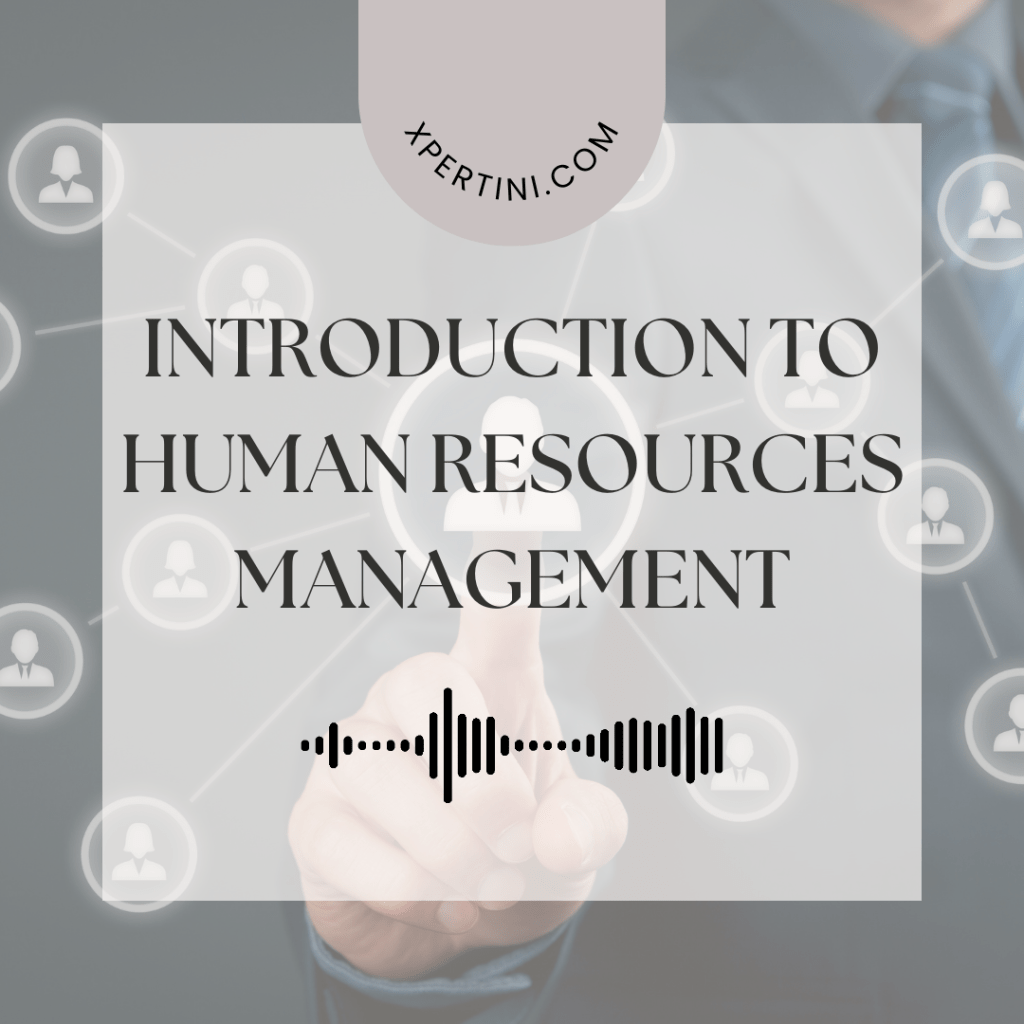Introduction to Human Resources Management
Course Summary
“Introduction to Human Resources Management” course is a journey through the dynamic landscape of HR practices. Much like skilled navigators charting unexplored territories, learners will delve into the multifaceted realms of HRM.
The course commences with introducing the definition and scope of Human Resources Management. Participants will grasp the importance of HRM in organizational success, setting the stage for an immersive exploration. Subsequently, the historical evolution of HRM unfolds, akin to tracing the roots of an ancient civilization. From the evolution of HRM from personnel management to pivotal historical milestones shaping contemporary HR practices, learners gain a profound understanding of the discipline’s evolution.
Moving forward, the course delves into the core functions of HRM, unfolding key areas such as recruitment, training, performance management, and the crucial role HR plays in employee relations. These lessons provide participants with a blueprint, much like a seasoned architect designing the framework for organizational success.
Communication and interpersonal skills highlight the vital role of effective communication in HRM. Much like adept communicators weaving a narrative, HR professionals learn to foster relationships and navigate the interpersonal dynamics inherent in the workplace.
Legal and ethical considerations act like a compass guiding HR decisions within the framework of employment laws and ethical decision-making.
As the course progresses, participants explore the strategic dimensions of HRM, seamlessly integrating HR practices with organizational strategy. The analogy here is that of skilled conductors orchestrating a symphony, harmonizing HR initiatives with the overarching goals of the organization.
Contemporary trends and challenges in HRM are dissected, resembling a strategic analysis of the ever-evolving HR landscape. HR technologies, akin to powerful tools, are explored, showcasing their impact on HR processes and the organizational ecosystem.
Then, focus shifts to sharpen critical thinking skills, transforming learners into adept navigators capable of problem-solving in diverse HR scenarios. This prepares them to steer through the complex waters of HR decision-making.
The course culminates with an exploration of diverse career opportunities in HR. Much like career architects, participants craft personalized roadmaps, understanding various HR specializations and strategizing for continuous career growth. By the course’s end, participants emerge as navigators equipped to sail the vast HR seas, navigating challenges and seizing opportunities with confidence and acumen.
Course Overview
This course provides a foundational understanding of Human Resources Management (HRM), emphasizing its pivotal role in organizational success. Participants will gain insights into the historical evolution, key principles, and contemporary challenges of HRM. Through a structured curriculum, learners will develop essential skills and knowledge required for a successful career in the field.
Course Objectives
- Understand the fundamental concepts and principles of Human Resources Management.
- Explore the historical development and evolution of HRM.
- Gain insights into the key functions and responsibilities of HR professionals.
- Develop the skills necessary for effective HRM, including communication, conflict resolution, and talent management.
- Examine the legal and ethical considerations in HRM.
- Understand the role of HRM in organizational strategy and development.
- Explore contemporary trends and challenges in the field of HRM.
- Learn about HR technologies and their impact on HR processes.
- Develop critical thinking and problem-solving skills in HRM contexts.
- Explore various career opportunities within the field of Human Resources.
Course Outcomes
- Define the core principles and concepts of Human Resources Management.
- Analyze the historical evolution of HRM and its impact on contemporary practices.
- Demonstrate proficiency in key HRM functions, including recruitment, training, and performance management.
- Apply communication and interpersonal skills essential for effective HRM.
- Analyze legal and ethical considerations in HRM decision-making.
- Evaluate the strategic role of HRM in organizational development.
- Assess current trends and challenges in the HRM landscape.
- Demonstrate competence in utilizing HR technologies.
- Apply critical thinking and problem-solving skills in HRM scenarios.
- Explore and evaluate diverse career opportunities within the field of Human Resources.
Course Audience
- Individuals aspiring to pursue a career in Human Resources.
- Current HR professionals seeking to enhance their knowledge and skills.

